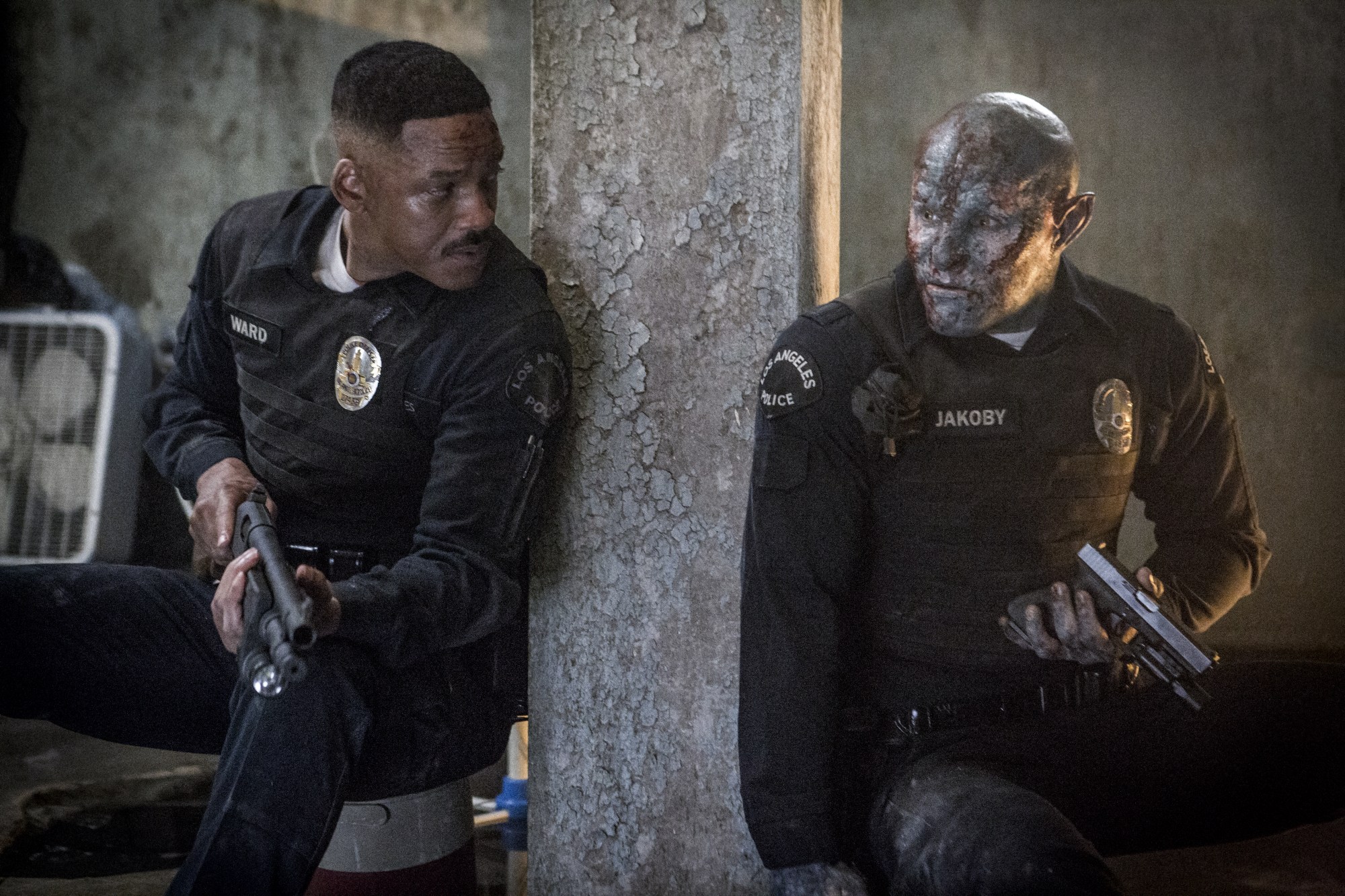By Ben Miller

If you haven’t heard already, Netflix will continue their quest for world domination with a tentpole feature film, Bright, in December. Directed by David Ayer (End of Watch, Fury), the film stars Will Smith as a Los Angeles police officer who is teamed up with an orc cop (Joel Edgerton) to fight crime and try to make sense of whatever the hell is happening in the trailer. There are fairies, magic wands, elves, swords, Noomi Rapace, and all sorts of other fantastical elements involved.
Let’s talk money. Bright cost $90 million for Netflix to pick up. Half of that cost went in to the film to shoot, while the other half goes to the talent (mostly Smith, Ayer and screenwriter Max Landis). These days, $90 million seems pretty reasonable for a fantasy film starring an A-List “Movie Star”. Suicide Squad, the most recent Smith-Ayer fantasy foray, cost $175 million. [More...]
There are already plenty of pros in the films favor. Ayer has a proven track record when it comes to police films (End of Watch, Training Day), Smith and Ayer have lavished praise on the creative freedom afforded to them, and when is the last time we had an action-fantasy movie that was R-rated? Have we ever had one?
On the side of cons, Smith has not exactly been lighting the world up lately. Suicide Squad might have made money, but it was critically ravaged (25% on Rotten Tomatoes). There are some interesting gray areas when it comes to black-cop-gets-to-be-racist angles that the trailer suggests. While fantasy can be a crapshoot in film, Netflix’s track record with feature films shouldn’t make you optimistic.
So, the real question…what constitutes a success? Adam Sandler signed a huge multi-picture deal with Netflix that they just re-upped on. His films have been almost universally panned, but Netflix’s users have watched Sandler’s films for upwards of half a trillion hours. Netflix’s other films have ranged from hyped, but arriving with a dud (War Machine), slow burn buzz but still underseen (Okja), quietly released and critically helped (Beasts of No Nation), all the way to quiet buzz and quieter release (The Discovery).
Let’s play a game of hypotheticals. Bright is released to relative acclaim (let’s say 78% on RT) and a wave of “Will Smith is Back!” think-pieces start popping up. Netflix doesn’t release their streaming numbers, so do we just have to assume that it was a success? How will we know that Netflix has made good on their $90 million investment? What backend deals do the filmmakers get when there are no grosses to be considered?
Let’s go to the flipside. Say the film sputters with critics (in the realms of 45% on RT) and instead we get a wave of “Movie Stars are a Thing of the Past!” think-pieces. We still have the same questions. Does it still make money? Sandler’s films apparently are doing just fine. What would constitute a flop?
I’m going to use a metric I call eyes per week (EPW). Using the most recent box office numbers and assuming an average $9.00 price per ticket (first quarter of 2017 was $8.84), we can assume Girls Trip had an EPW of just about 3.37 million in its first week. Girls Trip had no IMAX or 3D screens to account for, so it was the easiest to measure. Let’s use Get Out as a barometer for an entire theatrical run. Using the same assumptions, Get Out had an EPW of just a hair under 1.3 million for its run. So, on average, Get Out had 1.3 million people see it, every week for 15 weeks.
Using the same metric, Bright needs anywhere from 2-3 million eyes to see it in its first week to be a one-week success (put it on par with the $30 million Girls Night managed last weekend) and an average of one million per week for the next 15 weeks to be a success for its run (put it on par with the $175 Get Out put together).

But, once again, we don’t know the numbers because Netflix doesn’t release them. Does it matter if we know? Will Netflix’s further investment in features reflect that success? Or will they begin to divest based on that failure? Time will tell, or it may not at all.
Bright premieres on December 22.